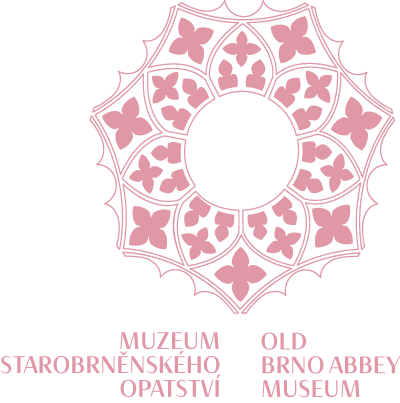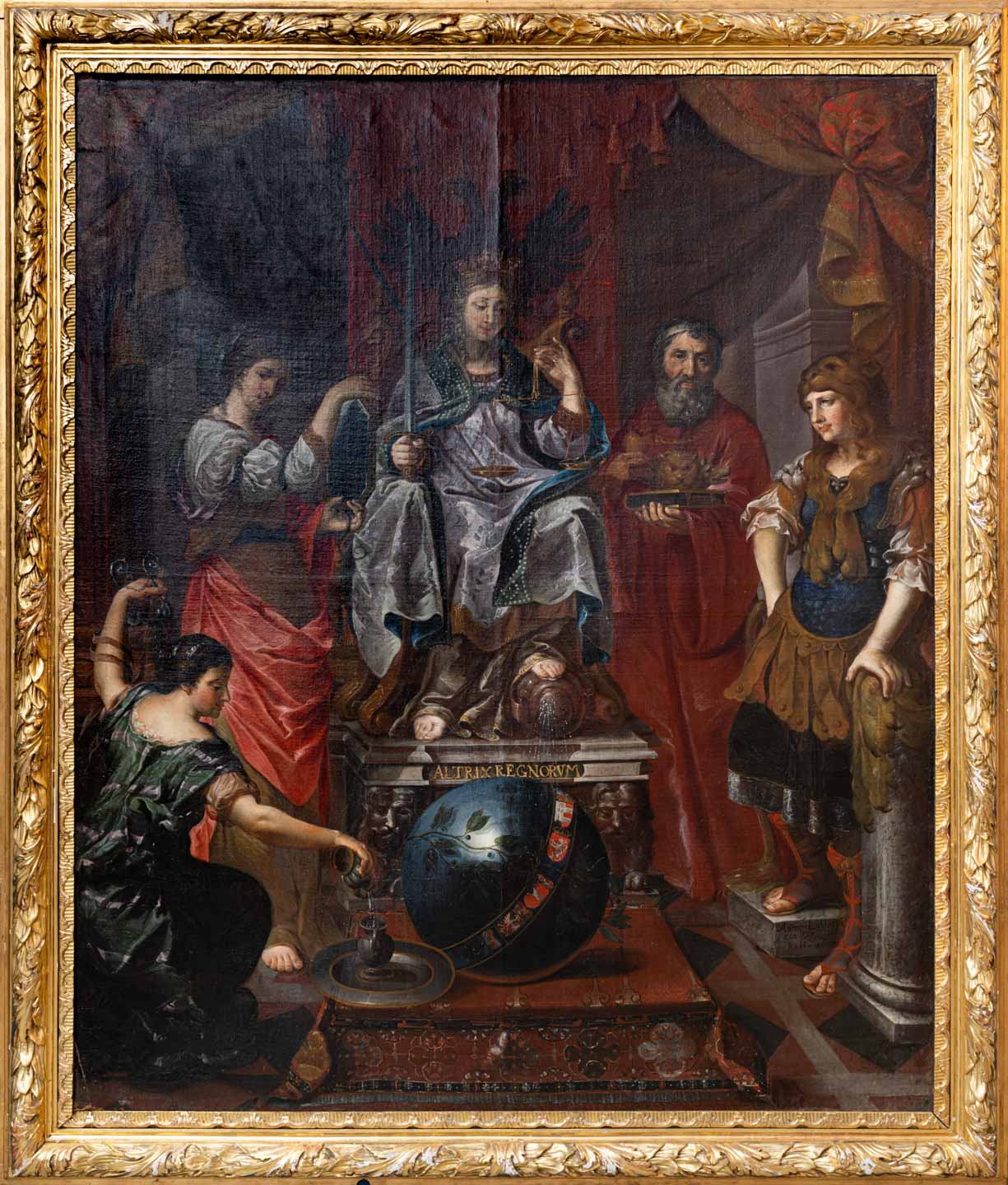Allegory of Justice
Martin Antonín Lublinský, 1682 | oil on canvas | 233 x 196 cm
According to tradition, Martin Lublinský (1636 Lešnice in Opole – 1690 Olomouc) should have learned painting under Karel Škréta, which can now be safely contradicted, as recent research clearly refutes this assumption. He studied philosophy and theology at the University of Prague and in 1664 entered the Augustinian Order of Canons in Olomouc at the Monastery of All Saints. He worked, among other things, as an advisor to Bishop Charles II of Olomouc. He was also a professor at Olomouc, where he worked as an assistant to Olomouc Bishop Lichtenstein-Kastelkorn. During his lifetime he painted frescoes, hanging and monumental canvases with sacred and secular motifs, genre and portrait work. He also became a sought-after author of graphic designs for university theses and book illustrations.
The painting Allegory of Justice represents a unique iconological concept created on the commission of the Moravian provincial governor Count František Karl Liebsteinský of Kolowrat. The canvas was intended for the decoration of the rooms of the Brno New Town Hall, namely for the premises of the “Royal Tribunal”. The painting is dominated by a figure seated on a throne, embodying Justice, dressed in a richly decorated robe. Her head is adorned with a crown and in her hands she holds her attributes of sword and scales, her left foot rests on a vessel from which flows a spring that falls on a sphere covered with ivy (symbol of immortality) with the coats of arms of the countries of the Habsburg monarchy. The inscription ALTRIX REGNORUM (nourisher of governments) placed in the centre of the canvas underlines the overall message of the iconological concept. The allegory of Justice is accompanied by, and at the same time a natural part of, four other figures representing virtues as the basis of good government. Providence in the form of a woman with a serpent and a mirror, Temperance pouring liquid from vessel to vessel and holding the bridle, Good Counsel (an old man) with a book and a heart, and Fortitude perishing as a woman in armour leaning against a pillar.

